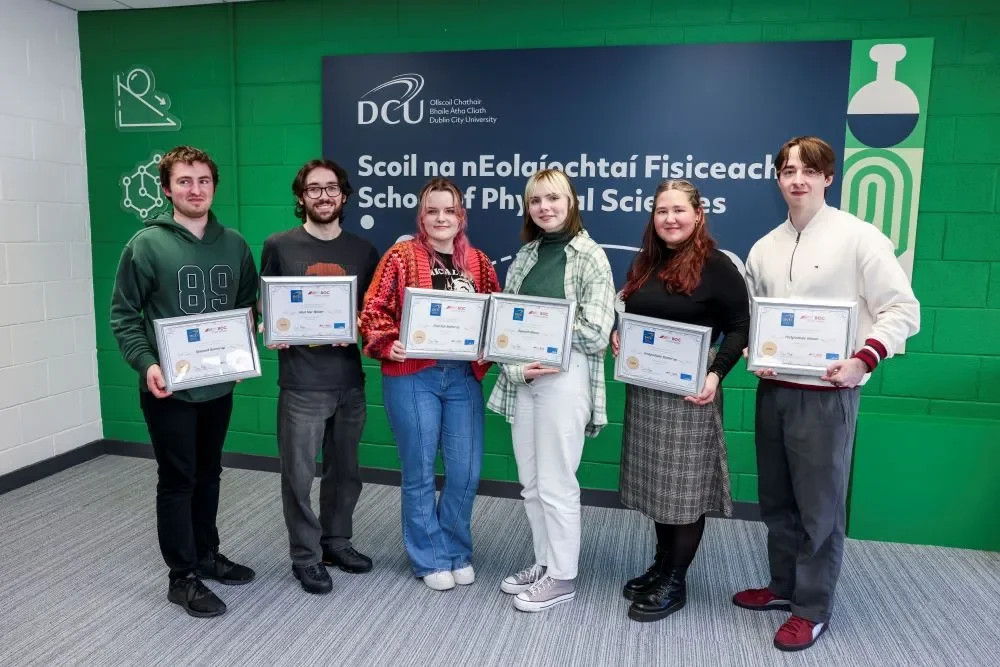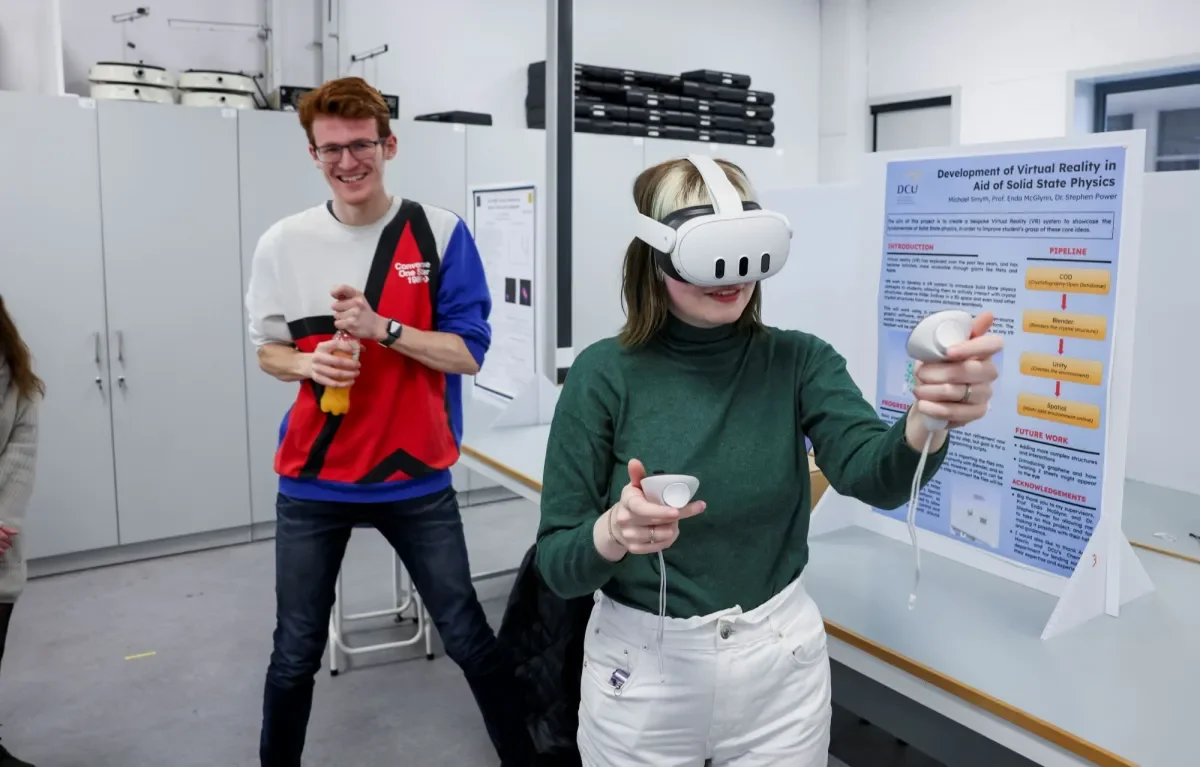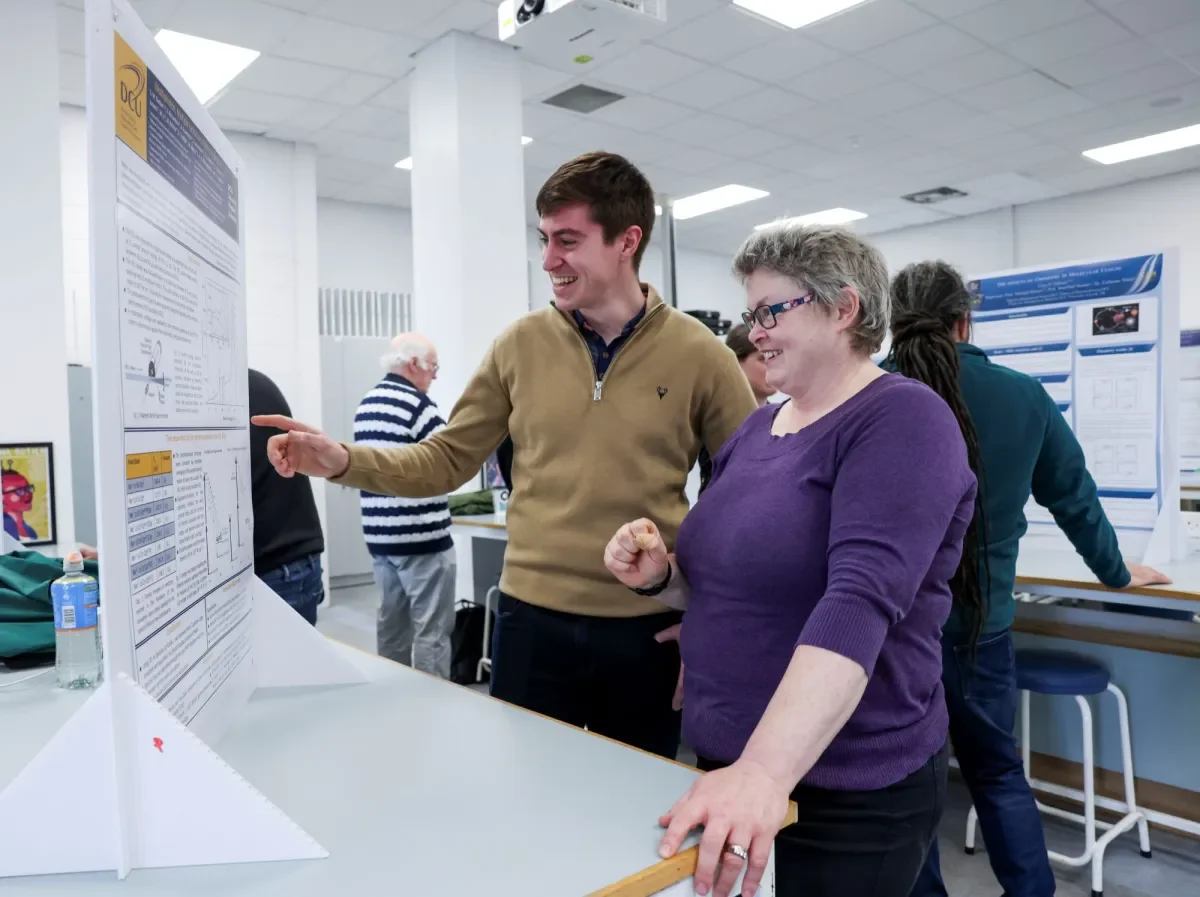

Huge variety of research on display at Physics Research Day 2024
The event, which featured posters from undergraduates, postgraduates and members of staff, reflected the great variety of research going on in the School of Physical Sciences.
Students and staff mingled together, and discussed the research that was on display before the event concluded with prizes being awarded in three categories: third year undergraduates, fourth year undergraduates and postgraduates.

In the third-year category, Hannah McDonnell was the winner and James Mahon the runner up. In the fourth year category, Leon Browne was the winner and Aoife Butler the runner up. In the postgrad category, Paul Cannon was the winner and Nika Gorchakova the runner up.
"There were a wide range of posters from astronomy to materials science, to biomedical physics," said Rob O'Connor, Assistant Professor of Physics.
"The judges were very impressed with the standard, and how the students articulated their work, particularly the Intra students who had only been working on their research topics for a few weeks," he said.

Nika Gorchakova’s research centres on the use of machine learning to help amateur astronomers look for exoplanets. This technology can help amateurs to know what part of the sky to look at, and how to do analysis of the images or video that are then gathered.
Paul Cannon’s poster was entitled “Nanostructured Quartz Crystal Microbalance for Enhanced DNA Detection”. This described his research into developing a portable DNA analysis device, based on new materials that can detect diseases or genetic disorders.
This device - which could be used in a GP’s office or any other non-hospital location - could provide test results on the spot, preventing the need for sending samples off to a lab for analysis. This can save time, and speed up the process of diagnosis and treatment.
